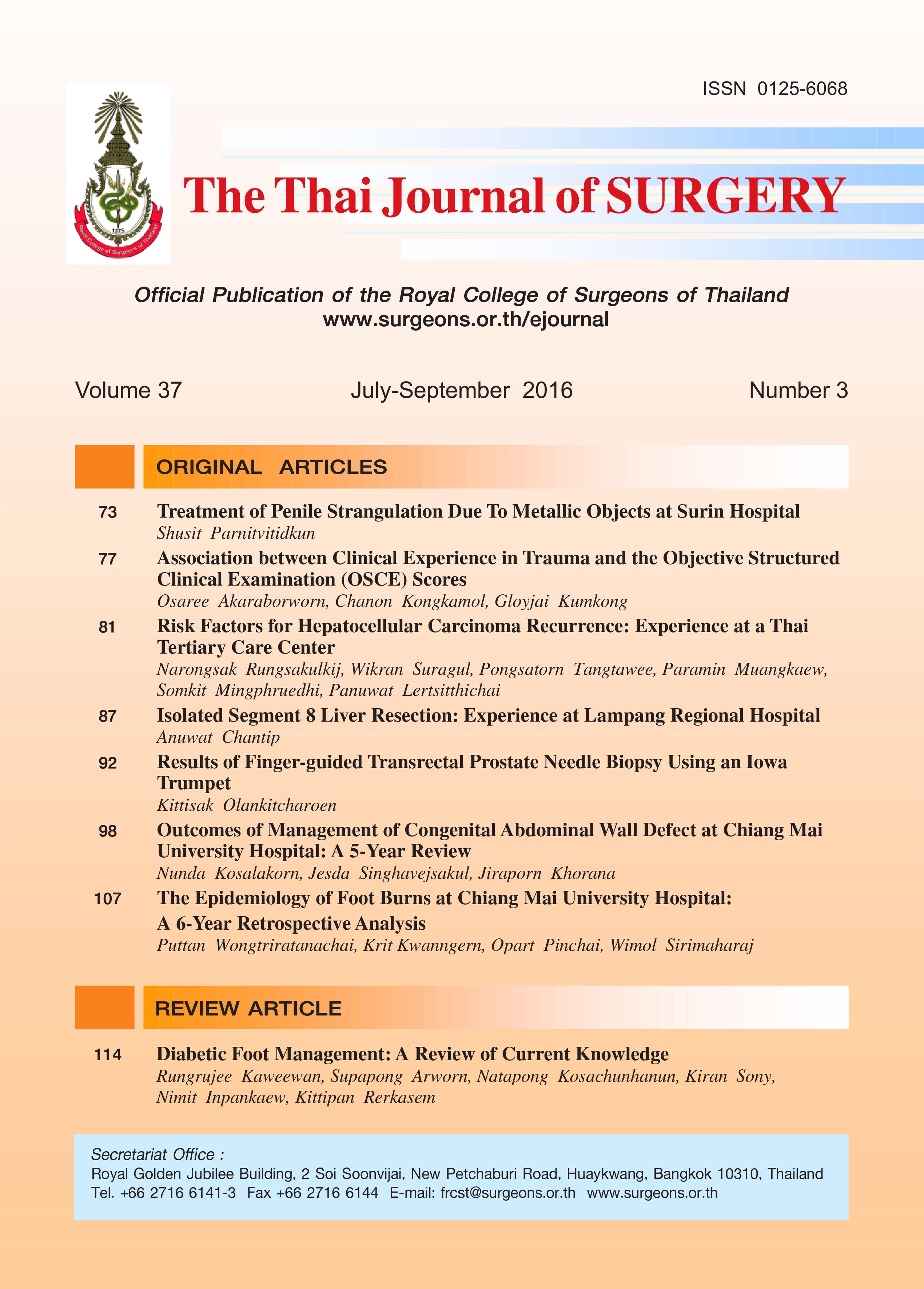Association between Clinical Experience in Trauma and the Objective Structured Clinical Examination (OSCE) Scores
Keywords:
OSCE, clinical experience, evaluation, educationAbstract
Objectives: Medical students during their final year at Prince of Songkla University have anopportunity to be exposed to real clinical situations in a clinical clerkship. This study evaluates the number of trauma
cases the medical students were exposed to during their final year before comprehensive examination, and
determines the correlation between the number of cases and the examination scores.
Methods: A questionnaire was sent to final year medical students at the end of their rotations in the final
semester. They were asked to report the number of trauma cases they were exposed to during the rotation. The
Objective Structured Clinical Examination (OSCE) was done at the end of the rotation. The Spearman rank
correlation was used to assess the association between the number of cases that they were exposed to and the OSCE
scores in a trauma station.
Results: Of 176 students, 119 students responded to the questionnaires (68%). The median numbers of injured
patients that the medical students were exposed to when they were at the university hospital and affiliated hospitals
were 20 cases and 100 cases, respectively. The number of cases was not correlated with the communication skills
assessment (rank correlation, r = –0.11, p = 0.23) or the medical performance(rank correlation, r = 0.0004, p = 0.99).
Conclusions: The number of trauma cases that the medical students were exposed to had no effect on the OSCE
scores.
References
2. Hay A, Smithson S, Mann K, et al. Medical students’ reactions
to an experience-based learning model of clinical
education. Perspect Med Educ 2013;2:58-71.
3. McManus IC, Richards P, Winder BC, et al. Clinical
experience, performance in final examinations, and learning
style in medical students: prospective study. BMJ 1998;
316:345-50.
4. Neumayer L, McNamara RM, Dayton M, et al. Does volume
of patients seen in an outpatient setting impact test scores?
Am J Surg 1998;175:511-4.
5. Chåtenay M, Maguire T, Skakun E, et al. Does volume of
clinical experience affect performance of clinical clerks on
surgery exit examinations? Am J Surg 1996;172:366-72.
6. R Development Core Team. R: A language and environment
for statistical computing. 2011 R Foundation for Statistical
Computing; Vienna: Available from: http://www.Rproject.
org/.
7. Chongsuvivatwong V. Epicalc: Epidemiological calculator.
R package version 2.14.1.6.; 2012 [homepage on the internet]
http://CRAN.R-project.org/package=epicalc
8. Martin IG, Stark P, Jolly B. Benefiting from clinical experience:
the influence of learning style and clinical experience on
performance in an undergraduate objective structured
clinical examination. Med Educ 2000;34:530-4.
Downloads
Published
How to Cite
Issue
Section
License
Articles must be contributed solely to The Thai Journal of Surgery and when published become the property of the Royal College of Surgeons of Thailand. The Royal College of Surgeons of Thailand reserves copyright on all published materials and such materials may not be reproduced in any form without the written permission.



